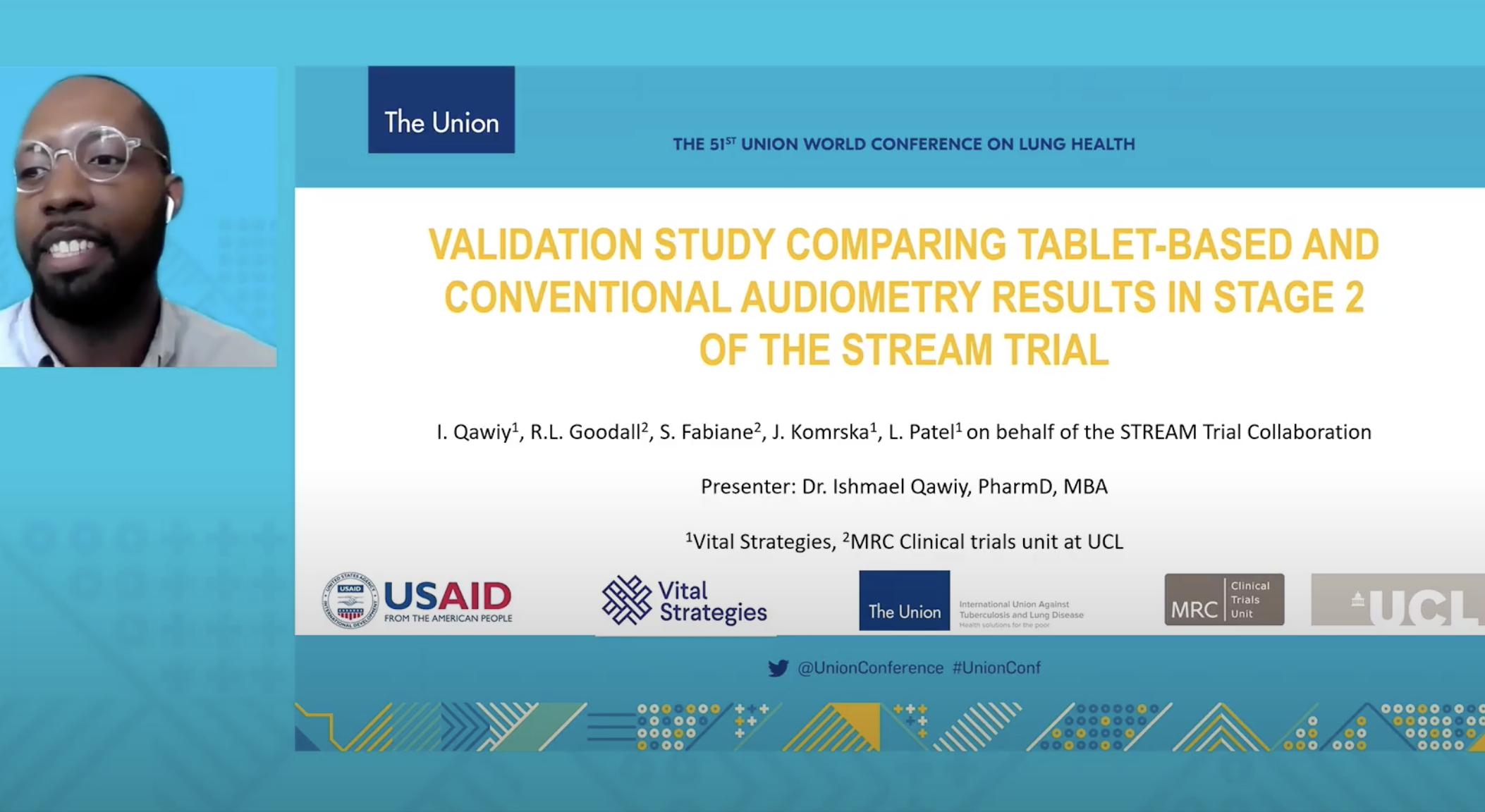Last week, the TREAT TB project team joined delegates from around the world at The Union’s virtual 51st World Conference on Lung Health. The four-day scientific program was a great platform for TREAT TB collaborators to showcase their ongoing work on the STREAM clinical trial.
TREAT TB events at the World Lung Conference included:
- Poster presentation entitled “Documenting Challenges Faced and Lessons Learned from Implementation of STREAM – the world’s largest recruited MDR-TB Clinical Trial” – Meera Gurumurthy (Vital Strategies)
- Poster presentation entitled “Cost-effectiveness analysis of nine-month MDR-TB treatment regimen as evaluated within the STREAM trial and difference in food supplement spending and working hours disaggregated by sex” – Laura Rosu (Liverpool School of Tropical Medicine)
- Oral abstract entitled “Validation Study Comparing Tablet-Based and Conventional Audiometry Results in Stage 2 of the STREAM Trial” – Ishmael Qawiy (Vital Strategies)
- Oral abstract entitled “Predictive analyses of QT prolongation from ECG monitoring in STREAM Stage 1” – Gareth Hughes (The Medical Research Council Clinical Trials Unit at University College London)
Vital Strategies Research Division staff showcased their work during the following events:
Clinical Research Officer, Meera Gurumurthy, presented on the challenges faced and lessons learned from implementation of the STREAM Trial, the world’s largest recruited clinical trial for multidrug-resistant tuberculosis (MDR-TB). With the complexity of designing and implementing clinical trials for MDR-TB, documenting challenges and lessons learned helps to ensure best practices are disseminated and implemented in future trials. STREAM trial sites reported limitations in infrastructure as a challenge across key aspects of the trial, including laboratory, pharmacy, and trial administration. Complexities around import/export of drugs/clinical samples, lack of prior clinical trial experience, and inadequate training were also identified as challenges. Trial sites identified investment in infrastructure and capacity building, ongoing monitoring and robust oversight of processes, clear roles and responsibilities and improved communication, and meaningful engagement of stakeholders as critical to successful trial implementation.

Ishmael Qawiy, Senior Pharmacist in Vital Strategies’ Research Division, presented our results comparing tablet-based audiometry to conventional audiometry. The results suggested that tablet-based audiometry was a sensitive tool for detecting hearing loss and an effective way to monitor clinical trial participants. Tablet-based technology is important for improving access to audiometry testing in low resource settings and should be considered in settings where conventional audiometry is limited or unavailable.
The STREAM clinical trial is being implemented by Vital Strategies and its affiliate, the International Union Against Tuberculosis and Lung Disease (The Union). The trial aims to generate evidence regarding the effectiveness of shorter, more tolerable treatment regimens for MDR-TB. It is made possible through funding from the United States Agency for International Development (USAID) through the TREAT TB Cooperative Agreement and Janssen Pharmaceuticals, with additional funding from the United Kingdom Medical Research Council (MRC) and the United Kingdom Department for International Development (DFID) under the MRC/DFID Concordat agreement. To learn more about the STREAM clinical trial and the importance of partnerships within the trial, please click here.
